Professional growth refers to the continuous process of acquiring new skills, expanding knowledge, and advancing in one’s career. In today’s dynamic job market, this concept goes beyond promotions and salary increases—it encompasses personal development, adaptability, and the ability to remain relevant in an ever-changing industry landscape. As technological advancements and global competition shape the workforce, professionals must prioritize ongoing learning to succeed. Professional growth empowers individuals to take ownership of their careers, seize opportunities, and unlock their full potential through deliberate actions and informed decisions.
The Role of Goal Setting in Professional Growth
Goal setting serves as the foundation for any meaningful professional growth journey. Clearly defined goals provide direction, focus, and motivation, helping individuals chart a roadmap for where they want to be in their careers. Whether aiming for a managerial position, gaining technical expertise, or transitioning to a new industry, setting SMART goals—specific, measurable, achievable, relevant, and time-bound—creates accountability and measurable progress. These goals also enable professionals to identify the skills and knowledge gaps they must address and guide them in selecting the right opportunities for business development. Regularly reviewing and adjusting goals ensures continued momentum and relevance in career advancement.
Importance of Continuous Learning in Professional Growth
Continuous learning is a vital element of professional growth, especially in fast-paced industries where new tools and methods frequently emerge. Professionals who commit to lifelong learning stay competitive by upgrading their skills, embracing innovation, and improving job performance. This learning can take many forms, from formal education and certifications to workshops, webinars, and self-study. Online platforms have made it easier than ever to access specialized training across various fields. Companies also increasingly recognize the importance of learning and development by offering tuition reimbursement, internal training programs, and mentorship opportunities to foster employee growth and retention.
Networking as a Catalyst for Professional Growth
Networking plays a critical role in professional growth by connecting individuals with peers, mentors, and industry leaders who can offer guidance, support, and career opportunities. Building a strong professional network helps individuals stay informed about industry trends, job openings, and best practices. It also fosters collaboration and knowledge sharing, allowing individuals to learn from others’ experiences and challenges. Attending conferences, joining industry associations, and engaging on professional platforms like LinkedIn are effective ways to expand one’s network. Relationships built through networking can lead to mentorships, partnerships, and new career paths that might not be accessible otherwise.
Mentorship and Coaching in Career Development
Mentorship and coaching are invaluable for accelerating professional growth by providing personalized support and insights. A mentor can share practical advice, challenge assumptions, and help navigate complex career decisions based on their experience. Coaches, on the other hand, offer structured guidance aimed at achieving specific goals, such as improving leadership skills or enhancing productivity. These relationships offer accountability, encouragement, and honest feedback, helping professionals gain clarity, overcome obstacles, and stay on track. Whether formal or informal, mentorship and coaching contribute to personal development and confidence, fostering a mindset of continuous improvement.
Leveraging Feedback for Professional Growth

Constructive feedback is a powerful tool for professional growth when approached with an open mind and a willingness to improve. Feedback from supervisors, peers, and clients highlights strengths, uncovers blind spots, and identifies areas for development. Seeking regular feedback and acting on it shows a commitment to excellence and growth. It also builds trust and fosters a culture of transparency and collaboration. Professionals should not only accept feedback but also proactively request it, using it as a guide for refining their skills, adjusting strategies, and enhancing performance. Over time, this habit contributes to self-awareness and long-term success.
Building Leadership Skills for Advancement
Leadership is a cornerstone of professional growth, even for those not in formal management roles. Developing leadership skills such as communication, decision-making, empathy, and conflict resolution can elevate one’s influence and effectiveness within an organization. Aspiring leaders should seek opportunities to lead projects, mentor colleagues, and contribute to strategic initiatives. Leadership development programs, peer groups, and executive coaching can also provide valuable training and perspective. Demonstrating leadership qualities positions professionals as valuable assets to their organizations and opens doors to advanced roles. Leadership growth not only benefits individuals but also contributes to team performance and organizational success.
Adapting to Change as a Professional Asset
Adaptability is a critical component of professional growth in a world where industries and job roles evolve rapidly. Professionals who can embrace change, learn new tools, and shift strategies without losing productivity are highly valued by employers. This flexibility allows them to respond effectively to challenges, seize emerging opportunities, and remain competitive. Cultivating a growth mindset, staying curious, and viewing change as an opportunity rather than a threat are essential attitudes for adaptability. Professionals who adapt well tend to lead innovation, drive transformation, and help others navigate transitions, establishing themselves as resilient and forward-thinking contributors.
Work-Life Balance and Its Impact on Growth
Achieving professional growth does not mean sacrificing personal well-being. In fact, work-life balance plays a crucial role in sustaining long-term career development. Chronic stress and burnout can hinder productivity, creativity, and motivation, ultimately limiting growth potential. Professionals must prioritize self-care, set healthy boundaries, and allocate time for rest, relationships, and personal pursuits. Employers who support work-life balance through flexible schedules, remote work options, and wellness programs contribute to a healthier, more engaged workforce. When individuals maintain balance, they perform better, think more clearly, and make more intentional career choices, reinforcing sustainable and meaningful professional growth.
Tracking Progress and Celebrating Achievements
Measuring progress is essential to staying motivated and ensuring that efforts toward professional growth are paying off. Regular self-assessments, performance reviews, and goal evaluations help individuals understand what’s working and where adjustments are needed. Keeping a portfolio of accomplishments, certifications, and testimonials provides tangible proof of growth and can be used to advocate for promotions or new roles. Celebrating milestones, both big and small, reinforces positive behavior and builds confidence. Recognition from others—whether from peers, supervisors, or clients—can be particularly validating and energizing. Acknowledging progress helps maintain momentum and reinforces a proactive approach to continuous improvement.
Creating a Personalized Growth Strategy
Every professional’s path is unique, and creating a personalized growth strategy ensures alignment with individual values, strengths, and long-term aspirations. This strategy should consider current competencies, desired roles, industry trends, and available resources. Regular reflection and adjustment help keep the strategy relevant and responsive to new developments. Professionals should balance short-term goals with long-term vision, ensuring that daily actions contribute to bigger career outcomes. Leveraging mentors, tools, and learning platforms can enhance the strategy’s effectiveness. A well-defined and flexible growth plan gives professionals control over their development and enables them to navigate their careers with purpose and direction.
Conclusion
Professional growth is a dynamic and multifaceted journey that empowers individuals to reach their full potential through skill development, strategic planning, and personal evolution. It requires a proactive mindset, continuous learning, and the courage to embrace challenges and change. From goal setting and mentorship to feedback and adaptability, each element plays a crucial role in shaping a fulfilling and successful career. By taking ownership of their development and aligning efforts with personal and professional values, individuals can create meaningful progress, contribute effectively to their organizations, and achieve long-term satisfaction in their chosen fields. Professional growth is not a destination but an ongoing commitment to excellence, resilience, and purpose.
